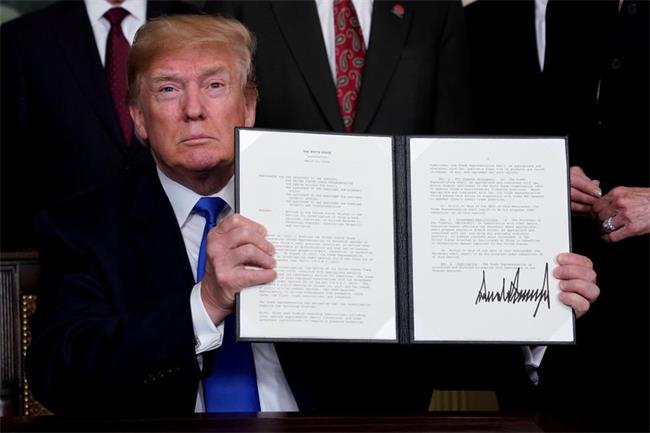US intellectual property claim criticized
By ZHONG NAN | China Daily | Updated: 2018-04-30 03:24

The United States claims that 36 of its trading partners, including China, Canada and Russia, are "inadequately protecting its intellectual property rights" and will push more countries to unite and retaliate with trade protectionism, economists said on Sunday.
The comments were made after the Office of the United States Trade Representative issued its latest Special 301 Report on Intellectual Property Rights on Friday, keeping China, Argentina, Chile, Indonesia and Russia on a priority watch list and adding Canada over concerns about its border controls and pharmaceutical practices.
China's Ministry of Commerce said on Saturday that the US has criticized the intellectual property rights situation in other countries for a long time. The report lacks objective standards and fairness and was generally opposed by the countries concerned, it said in a statement.
Even though the Trump administration may send a delegation to Beijing to talk about current trade issues to appeal to US voters for the upcoming midterm congressional elections, its purpose of containing China and holding back many countries' development hasn't changed at all, said Tu Xinquan, director of the China Institute for WTO Studies at the University of International Business and Economics in Beijing.
If the US continues to bring new protectionist or unilateral measures despite opposition from China and other trading partners, Tu said, more countries will be pushed to fight to the end to protect their interests.
The number of economies listed in the US report rose to 36 from 34 a year ago, after the United Arab Emirates and Saudi Arabia were added to the watch list.
"Unfortunately, there are a number of politicians and interest groups in Washington who wish to disrupt bilateral relations for various reasons," said Zhang Monan, a researcher at the China Center for International Economic Exchanges.
"Trade issues offer a convenient pretext for disrupting ties and increasing tensions," Zhang said.
























